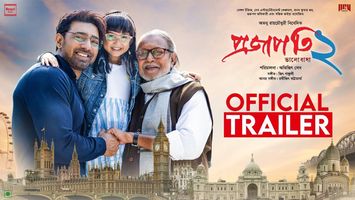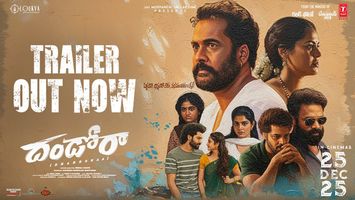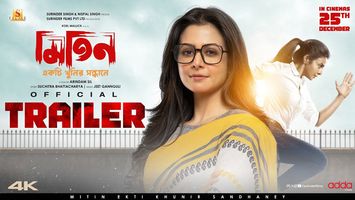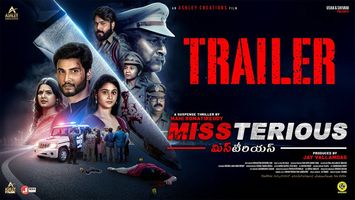One Line Review: A strong portrayal of communal tensions and the subsequent politics that plague the small towns of the country.
Positive Points: Appealing depiction of the communal tensions; the element of realism you would expect from the story.
Negative Points: Story tends to bore a bit as it could have been more intense and dramatic.
Plot: In a small village in Konkan, a horse carriage man dies due to a freak accident. Since the man was married to a Muslim, the people of the community living in the village claim his dead body. However, he is considered to be a Hindu and hence the Hindus want the body to be cremated according to their rituals. Soon this ensues communal tensions and violence in the village.
Newly appointed police officer Vishwas Rao (Vinay Jain) gets serious about handling the situation and tries to do his best to make the situation back to normal. However, the stove of communal tensions is kept burning by radicals on both the sides such as Rafiq (Santosh Juvekar) and a Hindu pandit (Sharad Ponkshe), who are hell bent on getting the deceased man's dead body.
On the other hand, the Muslim community is being flared up by their leaders such as Muttha Seth (Satish Kaushik) and peaceful, but cowardly and reluctant people such as one elderly Muslim man (Ashok Lokhande) are also being dragged along.
Amidst, the communal flare up, an inter-communal love story blossoms between Prashant (Alok Rajwade) and Shabbo (Apurva Arora).
Finally, after a lot of bloodshed, Vishwas Rao makes the final decision and sets the situation right.
Direction And Other Technical Aspects: Feroz Abbas Khan has done an impressive job of presenting the situation in the communally stricken remote village in Konkan. The politics of religious fanaticism, the divisiveness in the atmosphere and the resulting bloodshed have been depicted in an appealing way, but one may feel that it could have been even more engaging and better.
The director ensures that he is adding as much realism into the film as possible. He has positively avoided adding any background music scores in order to keep it serious and realistic.
Cinematography of the film is straight forward and doesn't take any 'masala angles' as in the mainstream. This is a part of the attempt to keep the film realistic and appealing.
In a way, both direction and cinematography work together to keep the film a thought provoking piece of work that evokes seriousness, sensitivity and appeal.
Performances: The film is dominated mostly by Marathi actors and they have done a brilliant job in portraying the hot headed communally charged village folks.
Santosh Juvekar has impressively executed the role of an angry and agitated Muslim youth.
Sharad Ponkshe, a senior Marathi actor, has also portrayed the character of a fanatic Hindu Pandit with conviction.
Vinay Jain plays the role of a newly appointed police officer, but does not deliver a strong role as he should.
Satish Kaushik, in his usual best, is a frail old Muslim politician, but still hot headed and angry.
Music: 'Shana Waleya' is the only song and at the end of the film, but is surely beautiful enough to listen to.
Final verdict: Feroz Abbas Khan has done a great job with the overall execution of the film, where he has done his best to depict the communally charged situation and the tensions that lead to bloodshed and destruction. He has made to point to depict the situation in as much realistic way as possible without trying to add any background music for effects. The movie is not only engaging but also greatly appealing in its nature. For those who are looking for a meaningful cinema, should certainly give it a try.

















